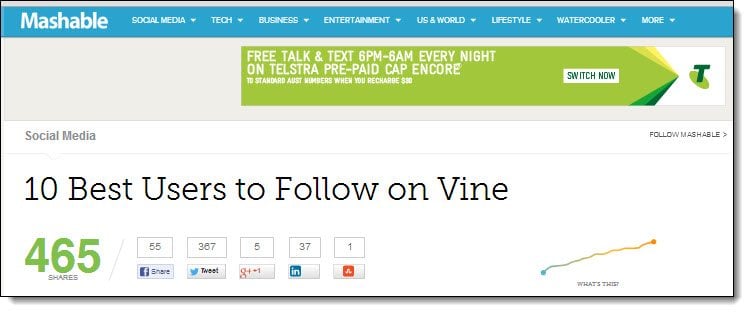Please leave your comments below I would love to know if others agree?
Check out Social Media Success FaceBook Page https://www.facebook.com/MichaelBev50? keep in touch & like the page while there! I will always reciprocate
Find me on LinkedIn http://www.linkedin.com/pub/michael-beveridge/23/309/
The UK
seems to fall behind the rest of the western World when it comes to using
Social Media “Why”
Looking
at UK business large and small it appears there is still NOT the awareness that
Social Media is a great platform to generate new business and promote products.
Most companies still don’t have a clue how to use this virtually
free Media especially when compared to other advertising mediums. Once you have
your ideas, products, company branding in place it takes very little effort or
budget to create a strong following for your Brand, Product or even and
individual. All companies have these in place for their regular forms of
marketing, hence it would be very easy to uplift and transfer this to all formats
of Social Media – So why are business not
jumping on this Free Marketing?
Is it because
companies/individuals feel there not internet savvy? Smaller business with no IT
help on site worry about costs, time to achieve, extra work load? No one to dedicate
time? Larger business with IT divisions still haven’t caught up with the world of Social Media – although most companies use the internet for business and
could not survive without it – so why the lack of enthusiasm
for Social Media, perhaps the older managers, CEOs and executives feel it’s a young persons medium! Hopefully not as their missing a
trick and after all the younger generations will become customers at some point
– their all potential
customers.
I have
been spreading the word about this Revolution for years now and could always
see the advantages for my business “The Greenhouse.brasserie.com” creating a Facebook Page to promote menus, events, new
ideas and ask for customer feedback, which involves your customers in decisions
and they feel a part of your business and love it when you respond and keep
them involved. We use twitter not only to promote, but to congratulate, throw
out new ideas, menus, news etc. Both these mediums helped us to create a valuable
mailing list, which in turn helps me develop a by-monthly newsletter, which
again we promote seasonal foods, menus and special promotions throughout the
year – Easter, Mothers Days,
Christmas etc.
Yet I don’t see as many companies doing this here in the UK!!!!!
Or is it
the age old excuse we don't have the time? That’s
like saying we don't have the time to find new customers, we don't have the
time to talk to our current customers. Yet when given the opportunity to spend
a fortune on un-targeted advertising – newspapers, magazines, flyers
or mailing lists that possibly gain no more than 20% return if you’re lucky, businesses jump at the chance spending their yearly
marketing budgets on the old formats.
Come on
UK business, wake up and smell the roses, Social Media gives you a highly
targeted audience to both promote to and talk to and does one extremely
important thing as far as sales are concerned.
"SOCIAL
MEDIA BREAKS DOWN BARRIERS AND CREATES TRUST"
Normal
sales and marketing techniques cost thousands of pounds and hundreds of man hours,
sometimes to just open the door to one good client.
I certainly
don’t think you should forget
about sales people, on the contrary, customers still like face to face contact,
which creates trust and loyalty, but I do think that all sales people needs a
greater awareness of Social Media and what it can do for their business and
often them as individuals.
So, how
about UK business waking up and giving their sales people a hand with breaking
down the key barriers. Help them to be able to communicate with existing
customers and have the opportunity to find new highly targeted accounts, Social
Media does this with ease. And I reckon that a lots of UK business are falling
behind on basic training in Social Media within their sales teams.
Why do
you think big business have "Find us on Facebook or Follow us on
Twitter"? Because they want to be in with the in-crowd? I don't think so.
They recognise that one like on Facebook can get them seen by millions of potential
customers, customers that are interested in their products, a targeted
audience.
A like on
Facebook is as good as you saying I trust these people so it’s OK for you to trust them to, why not add them to your
list. That's a third person recommendation and we all know just how effective
recommended business is and most importantly how cost effective it is.
Having a
Twitter account is like having a search engine dedicated solely to finding
people who are talking about your products this very instant. No other system
in the world can do that so simply, business needs to get savvy, if you don't
have the time to type a few words a day then don't moan if sales plummet.
Facebook,
Twitter and other social media are not the sole domain of big business, any business
can give even the biggest company a run for their money with social media and
it costs very little.
Social
Media is here to stay and in my opinion will be the future proof link to all
marketing and customer service. Some media sites will not survive if they don't
keep up and others will grow to replace them. Social Media will virtually
replace traditional advertising over time as it is amazing value in comparison
to other forms of marketing or advertising. With one click or tweet you can
reach millions of targeted customers, try doing that on your TV or in the
papers.
So UK
business let’s get going and start to build
successful marketing and customer service media. If you wait your competition
will have your customers and you can’t buy a targeted Social Media
presence of any worth, not yet anyway.
So come on UK Business
Join the Revolution!!
Social Media Success - You Need To Be A Part of It https://www.facebook.com/MichaelBev50?ref=hl
Happy Marketing
Mike Beveridge

























